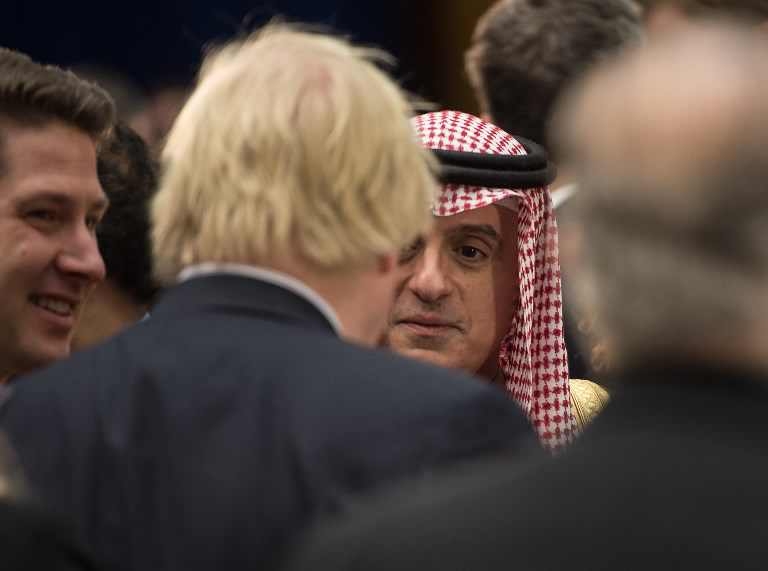Progress on Qatar crisis possible, Britain says in talks with Saudis

British Foreign Secretary Boris Johnson said on Saturday progress could be made to heal a rift between Qatar and other Arab states, although a solution was unlikely to be found immediately.
Saudi Arabia, the United Arab Emirates, Egypt, and Bahrain have cut diplomatic and transport ties with Qatar over accusations it was financing terrorism, claims which Doha says are "baseless".
"My impression is progress can be made and there is a way forward," Johnson said in a televised interview released to media after meeting senior government figures in Kuwait, which is attempting to mediate between the two sides.
"But I'm not going to pretend to you now that it is necessarily overnight or this is going to be done in the next couple of days," he said.
Johnson, who held meetings on Friday with Saudi Crown Prince Mohammed bin Salman and the crown prince of Abu Dhabi, Sheikh Mohammed bin Zayed al-Nahyan, is due to travel to Qatar later on Saturday for meetings with its emir and prime minister.
"We think the blockade was unwelcome and we hope there will be a de-escalation," Johnson said.
Johnson's counterpart, US Secretary of State Rex Tillerson, is expected to fly on Monday to Kuwait - the Gulf state that has been acting as a mediator in the crisis.
His trip comes amid growing unease in Washington over the continuing crisis.
The US State Department's spokeswoman, Heather Nauert, said on Friday that Washington had become "increasingly concerned that the dispute is at an impasse" and could yet continue for months.
And US Defence Secretary James Mattis called his Qatari opposite number Khalid bin Mohammad al-Attiyah to emphasise "the importance of de-escalating tensions ... so all partners in the Gulf region can focus on next steps in meeting common goals," according to a Pentagon statement.
Stay informed with MEE's newsletters
Sign up to get the latest alerts, insights and analysis, starting with Turkey Unpacked
Middle East Eye delivers independent and unrivalled coverage and analysis of the Middle East, North Africa and beyond. To learn more about republishing this content and the associated fees, please fill out this form. More about MEE can be found here.




